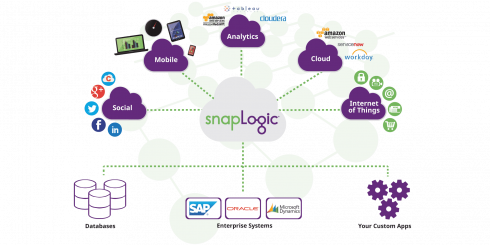
SnapLogic announced new features and enhancements that boost user productivity and improve the performance and reliability of its integration platform.
The latest release includes new API management capabilities that add tools and support for API developers that want to take a design-first approach to app creation in which the design and specifications of the API are developed before creation of the integration pipeline.
In addition, SnapLogic added API versioning in this release, which enables developers to easily create new API versions and to manage the assets and policies of each version independently.
Ionic Portals released
Ionic Portals provides users a supercharged Web View native control to enable native and web teams to better collaborate and create new and existing web experiences in a mobile and safe, controlled way.
Ionic Portals solves the issues that stock Web View controls have such as lacking features that expose additional native functionality to the web experience. The new solution provides the ability to programmatically define new APIs that web developers can consume in a controlled manner.
Ionic Portals is currently in closed alpha with a few early adopter mobile teams. Additional details are available here.
CircleCI Series F of funding
CircleCI announced that it raised $100 million for its Series F funding round to help developers deliver high-quality code quickly.
The company said it will use the funds to invest in its platform, build out its Insights dashboard and expand its fleet of over 20 compute options.
CircleCI plans on bringing more features such as dynamic config, private orbs and test insights.
Exabeam Fusion XDR and Fusion SIEM
Exabeam announced Fusion XDR and Exabeam Fusion SIEM, two cloud-delivery products that aim to solve threat detection, investigation and response (TDIR) without disrupting an organization’s existing technology stack.
Exabeam Fusion combines behavior analytics, TDIR automation and pre-built integrations that find abnormal activity and then build Smart Timelines to automatically reconstruct security incidents. Fusion SIEM includes all Fusion XDR features and capabilities plus access to centralized log storage, powerful search, and compliance reporting
“When security analysts are unable to connect the dots between various systems, malicious attacks go undetected and lead to security breaches. Delivering Exabeam Fusion XDR and Exabeam Fusion SIEM from the cloud enables us to accelerate feature and functionality development, while deploying a use case framework that consistently delivers successful outcomes for our customers,” said Adam Geller, the chief product officer at Exabeam.
Deno 1.1 released
The Deno 1.1 release includes new features and improvements to the built-in test runner.
Before this release, Deno ran all tests serially inside a single runtime instance. Now all discovered test modules are run in isolation using a new instance of a runtime for each of the modules. It also now supports a ‘permissions’ option that allows users to specify exact permissions that can be applied to a use case.
Structured clones and remote import maps are now supported in Web Workers. Also, the Web Storage API has been added.
Digital Twin Consortium’s new open-source collaboration community
The Digital Twin Consortium (DTC) announced a new open-source collaboration community to accelerate the adoption of digital twin-enabling technologies and solutions.
“Open-source projects are more flexible and respond more rapidly to market demands than closed counterparts,” said Dan Isaacs, the CTO of DTC. “Our Open-Source Collaboration Community initiative will substantially expand the DTC ecosystem and facilitate the adoption of digital twin and digital twin enabling technologies.”
To be able to contribute to the open-source collaboration community, candidates must complete a project application which the DTC Technical Advisory Committee reviews. If approved, contributors can upload their project or related content to the DTC Open-Source Collaboration GitHub site.






